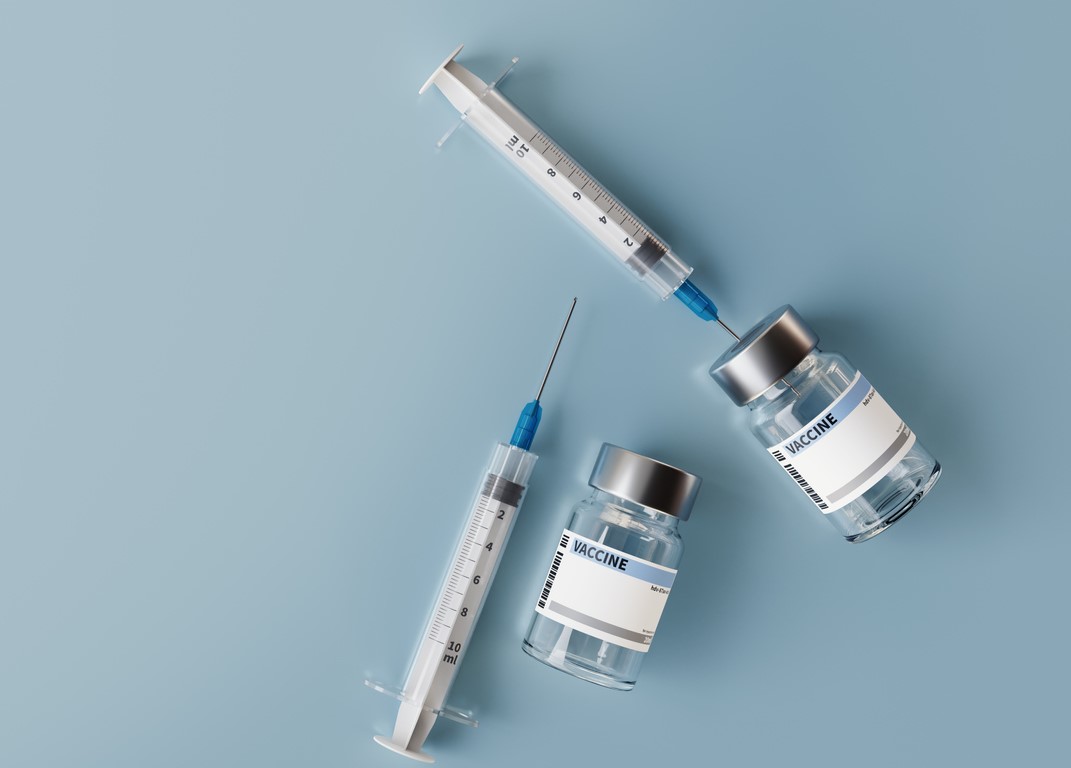As in the past 4 years, the vast majority of Americans say they believe in the value of childhood vaccination against measles, mumps, and rubella (MMR), but half of parents of young children say they aren't sure all childhood vaccines are necessary and support for school vaccination requirements is down sharply, according to the results of a new Pew Research Center survey.
The survey, however, showed much less faith in COVID-19 vaccines than in childhood immunizations.
Concern over vaccine beliefs
Pew surveyed 10,701 US adults from March 13 to 19, 2023, on their perceptions of childhood and COVID-19 vaccines and conducted 22 in-depth, qualitative interviews with adults who expressed concerns about vaccines.
"The polarized response to the handling of the coronavirus outbreak in the United States, including the role of COVID-19 vaccines, has been a source of deep concern for medical and public health communities," the authors wrote. "It has also raised questions about whether vaccine hesitancy connected with COVID-19 vaccines would spill into Americans' views of other vaccines."
That concern was heightened after a study published in Morbidity and Mortality Weekly Report in January showed continuing declines in the percentage of kindergartners receiving state-required vaccines, declining slightly from 94% in the 2020-21 school year to 93% in 2021-22.
Parents of young children more hesitant
A total of 88% of survey respondents indicated that the benefits of childhood MMR vaccines outweigh the risks, compared with 10% who say the risks outweigh the benefits. The proportion saying they believed in the value of MMR vaccines was the same who indicated this in 2019, before the COVID-19 pandemic.
The polarized response to the handling of the coronavirus outbreak in the United States, including the role of COVID-19 vaccines, has been a source of deep concern for medical and public health communities.
When asked to independently evaluate the MMR vaccine's health benefits and risk of side effects for children, 72% of respondents said the benefits of MMR vaccines are very high or high, and 64% said the risk of side effects is very low or low.
Yet parents are more concerned about the risk of these vaccines than other respondents, with roughly half of those with a child aged 0 to 4 saying they worry that some recommended childhood vaccines are not needed. That sentiment was more common among mothers than fathers of a child or teen, with about half saying the risk of side MMR vaccine side effects is medium or high, 15 percentage points higher than fathers.
"The survey findings highlight the sizable gap between higher public confidence in childhood vaccines and lower ratings of COVID-19 vaccines," the report said. "Fewer than half of US adults consider the preventative health benefits of coronavirus vaccines to be high, and a majority see the risk of side effects from them to be at least medium."
Most Americans still agree with the statement, "We don't really know if there are serious health risks from the COVID-19 vaccines." But just over a third of adults (34%) said they are enthusiastic about COVID-19 vaccines and staying current with boosters, while 33% completed a primary series but are not current with boosters, and 21% remain unvaccinated.
Fewer in favor of vaccine mandates for school
Upwards of 40% of adults said they have a lot (45%) or some (43%) confidence in their healthcare provider to give an accurate picture

of the benefits and risks of childhood vaccines. Respondents with the highest level of trust also express the most confidence in the benefits of MMR vaccines. One vaccine-hesitant interviewee said it's important to interview doctors. "Because doctors are human, and they do have their personal opinions," she said. "And if they're going to push their personal opinion as their professional opinion, that's not necessarily fair to you as a patient."
Fewer participants (70%) said that healthy children should be required to be vaccinated before attending public schools, down from 82% in 2019 and 2016, and the proportion who said parents should be able to decide not to vaccinate their children is now 28%, up 12 percentage points from 2019.
A lower percentage of Republicans (57%) said they support childhood vaccine mandates, down from 79% in 2019, but the proportion of Democrats supporting the requirements has remained the same (85%).
Fewer participants (70%) said that healthy children should be required to be vaccinated before attending public schools, down from 82% in 2019 and 2016.
White evangelical Protestants, most of whom are Republicans, are also less supportive of vaccine requirements in public schools. A total of 58% said children should be required to be vaccinated to attend public schools, and 40% said parents should be able to decide not to vaccinate their children—regardless of whether it poses health risks for others.
"This represents a sizable shift from 2019, when White evangelicals backed vaccine requirements for public school children by a margin of 77% to 20%," the authors wrote.
Women were more likely than men to be unvaccinated (57% vs 43%, respectively), and 83% of the unvaccinated had less than a college degree. In contrast, older participants were highly likely to be current with COVID-19 boosters, making up 34% of up-to-date respondents.
Less faith in COVID-19 vaccines
Most participants said the benefits of COVID-19 vaccines outweigh the risks (62%), compared with 88% who said the same about the MMR vaccine. Fewer than half of adults said the benefits of COVID-19 vaccines are high (45%), while 72% said this about MMR.
A majority (58%) described the risk posed by COVID-19 vaccine as medium or high, 64% describe the risk from the MMR vaccine as low,  and 35% rated the risk as medium or high.
and 35% rated the risk as medium or high.
Of participants who hadn't received a COVID-19 vaccine, 74% said they believe the benefits of the MMR vaccine outweigh the risks. Among parents who aren't vaccinated against COVID-19, 70% said their child has been vaccinated against MMR.
Adults current with COVID-19 vaccines hold significantly higher opinions of MMR vaccines than their unvaccinated peers. Parents vaccinated against COVID-19 were also more likely to say their child had received the MMR vaccine.
Among parents who aren't vaccinated against COVID-19, 70% said their child has been vaccinated against MMR.
Sixty-eight percent of respondents not vaccinated against COVID-19 said they worry that some childhood vaccines are unnecessary, while only 25% of recently boosted adults and 36% of those not up to date with boosters said the same.
Correlation with flu shot uptake
Three quarters of participants who are up to date with COVID-19 boosters said they usually get a flu shot every year, while 77% of the unvaccinated said they rarely or never did. Of vaccinated respondents not current with COVID-19 boosters, 44% said they get an annual flu shot, while 18% said they do so every few years, and 37% said they rarely or never do.
The proportion of adults who said they usually get an annual flu shot (48%) is roughly the same as it was in 2020 (47%), but the division between the percentages of Democrats and Republicans who reported getting an annual flu shot has widened (56% vs 41%, respectively) since 2020 (50% vs 44%).




















